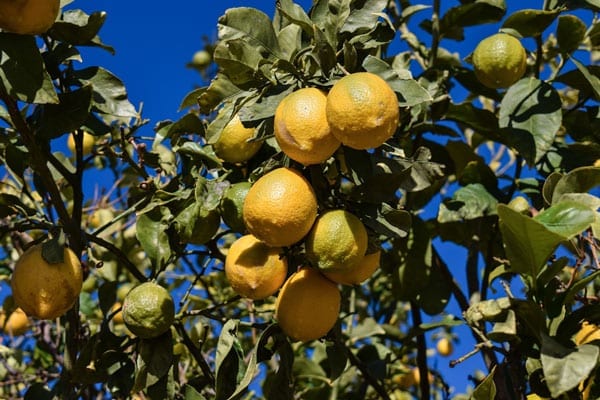Factoring Companies in Corona
The Benefits of Invoice Factoring
Invoice factoring, also known as accounts receivable financing, offers a cash-flow solution to companies that are waiting to get paid from slow-paying customers. Invoice factoring with Scale Funding eliminates the cash-flow gap by paying you same-day on your invoices.
 While there are many financing and factoring companies in Corona and California, Scale Funding offers numerous added benefits and advantages when you choose to work with us. Some of these include:
While there are many financing and factoring companies in Corona and California, Scale Funding offers numerous added benefits and advantages when you choose to work with us. Some of these include:
- Free, no-obligation consultation and quote
- Streamlined Setup
- Fast Funding in Less than 24 Hours
- Low Factoring Rates
- Debt-Free Financing
- 24/7 Online Reporting
- Dedicated Account Managers
- Professional Collectors
- Free Credit Services
Industry Expertise
Since 1994, we’ve funded a variety of industries through our Corona invoice factoring programs. Our team knows the invoicing process and all of the major players in many industries. Some of these industries include:
- Trucking & Freight
- Oilfield Services
- Technology
- Telecom
- Staffing Agencies
- Government Contractors
- Utility & Pipeline
- Heavy Construction
Customized Programs
One of the most common reasons companies use our Corona accounts receivable financing programs is to speed up their cash flow. Instead of waiting for 30 to 90 days for customer payment, we eliminate the wait by paying them the same day.
Although this is the most common reason, there are several other reasons businesses use factoring. Some of these include credit issues, tax liens, bankruptcy, business growth, and bank turn-downs.
So whether you’re just starting up, are expanding quickly or are having difficulty getting funding from a bank, we can help. Scale Funding is proud to be your top choice among factoring companies in Corona and California.
Corona, California


History
The Luiseño Indians settled in Riverside County. They were known as gatherers and hunters. They hunted animals such as birds, rabbits, coyotes, rodents, snakes, black bear, and fish. They made straw baskets from wild grasses and clay containers to gather roots, wild berries, seeds and acorns for food.
The Luiseño Indians used the hot water in Temescal Canyon to bathe every day and as a part of their religious functions. Nowadays, inhabitants and visitors still appreciate the hot springs and reviving mud baths at the Glen Ivy Resort. Luiseño religious functions were entirely followed and remnants of some of their petroglyphs. Creative pictographs can even now be found on many rocks in the undeveloped area.
These Indian tribes were under the influence of the Spanish pilgrims at the Mission San Luis Rey, and they were given the name Luiseño. As Spanish settlement advanced inland, Spanish ranchos took control of the land.
Robert Taylor, a developer, influenced his accomplices, Garretson, Rimpau, Joy, and Merrill in 1886 to form the South Riverside Land and Water Company. Together they raised roughly $110,000 to buy around 12,000 acres of horticultural land. Taylor understood the significance of water for the developing community, and extra support was given to guarantee that adequate water rights were acquired.
On July 3, 1896, the inhabitants of the community voted to incorporate and change the name to Corona, which is Spanish for crown, to pay tribute to the city’s roundabout on Grand Boulevard. In recognition of California’s Admission Day, Corona inhabitants celebrated with an international automobile race on the boulevard on September 9, 1913. The occasion pulled in racing greats such as Ralph De Palma, Earl Cooper, Barney Oldfield, and Terrible Teddy Tetzlaff. It was successful to the point that races were held again in 1914 and 1916. The tradition ended unsurprisingly after the 1916 death, and due to the costs and local efforts needed to stage such an excessive event.
Economy


By 1915, lemon production was surpassing national demand, and many local businessmen cooperated to form the first lemon exchange by-products company in the United States. In 1954, they employed more than 700 workers and showcased an assortment of lemon items for international disbursement. The plants produced lemon juice, lemon oil, citric acid, and pectin, which gave Corona the nickname of “Lemon Capital of the World.” As housing development started to overwhelm southern California citrus plantations, the plant owners found that the absence of a local supply was a constraint on growth. They shut down the Corona plant in 1982.
Mining has constantly been an essential part of the economy. Since citrus has declined and the mines remain, they have again turned into a center of interest in Corona.
Agribusiness has constantly assumed a significant part in Corona’s history. The land toward the northwest was more reasonable for beans, walnuts, horse feed, tomatoes, sugar beets, and dairy, as far back as 1914. In the 1930s, the normal dairy farm comprised five to 10 acres of land with 35 to 70 cows. In 1982, operations had become highly automated, with around 500 cows for every 60 to 200 acres of land.
Corona’s industrial base has assumed an imperative part in the development of the city and its worker base. There are more than 42,000 occupations inside the city with more than 84,000 workforce members. Corona’s retail and business areas are extending and office advancement is booming. The city has more than 34 million square feet of modern space and more than three million square feet of office space under development. The city is continually seeking ways to assist the business communities with a motivated workforce, communication, incentives, and team-building opportunities.
Arts and Culture
The Fender Museum of Music and the Corona Public Library provide social and instructive programming. The city’s senior center is a center point of activity programs, workshops and get-togethers.
The Arts Alive Council is a volunteer organization founded to “cultivate, promote, and increase people knowledge about cultural activities and art appreciation in the Corona Area.” Members include:
- The Corona Dance Academy
- The Corona Symphony Orchestra
- Circle City Chorale
- Christian Arts and Theater
Parks and Museum
The city Heritage Park and Museum occupies five of the 2,000 acres of land of lemon groves that were once there.
The first structures of the building have been preserved and are still standing. Three private homes of the owner, manager, and supervisor, constructed in the 1900s, are currently a spiritual center, art gallery and railroad museum. The donkey and horse shed is currently a collectibles store. The packing sheds are loaded with art educators and business craftsmen. What was at one time the 1937 company store is presently the 10,000 square foot Heritage Museum, loaded with local artifacts and inquisitive guests.
The park is a place for field excursions, receptions, community gatherings, weddings, cultural events, classes for exercise, art galleries, horticulture and gardening, research and resources, historical awareness, discovery, reflection and more.
Corona Heritage Park and Museum has become an exceptional facility that is valuable to the community, consciously protecting the history and advancing towards objectives for the future.
Quality of Life
In 1962, Highway 91 (Riverside Freeway) was constructed through Corona, and in the late 1970s, downtown Corona experienced urban renewal. The former downtown was demolished and a new downtown was built. The I-15 express lanes were paved in 1989, as the development of South Corona Sierra del Oro and Corona Hills were in progress. New business advancements started opening in Sierra del Oro, Lincoln Avenue, and McKinley Avenue.
Walmart, Price Club and a new automobile shopping center became critical parts of the city’s renewal. The city of Corona opened the recently redone Corona Public Library in June 1993, at 650 South Main Street. The renovated library has 62,300 square feet of space and includes the expansion of new automated technologies.
In 1996, the city’s population had increased to 100,000, with 32 parks, a gymnasium, a senior center and 30 schools in the Norco Unified School District.
The city’s incorporation centennial was celebrated with various events, ceremonial dedications, banquets, picnics, and parades.
The communities in the city of Corona boast numerous amenities that provide satisfaction for residents. The city has more than 394 acres of parks, with an outdoor pool, two skate parks, tennis courts, playgrounds, basketball courts, and sports fields.
Public Safety endeavors by the city fire department and police department have brought about lower crime rates and a top-notch paramedic program.


